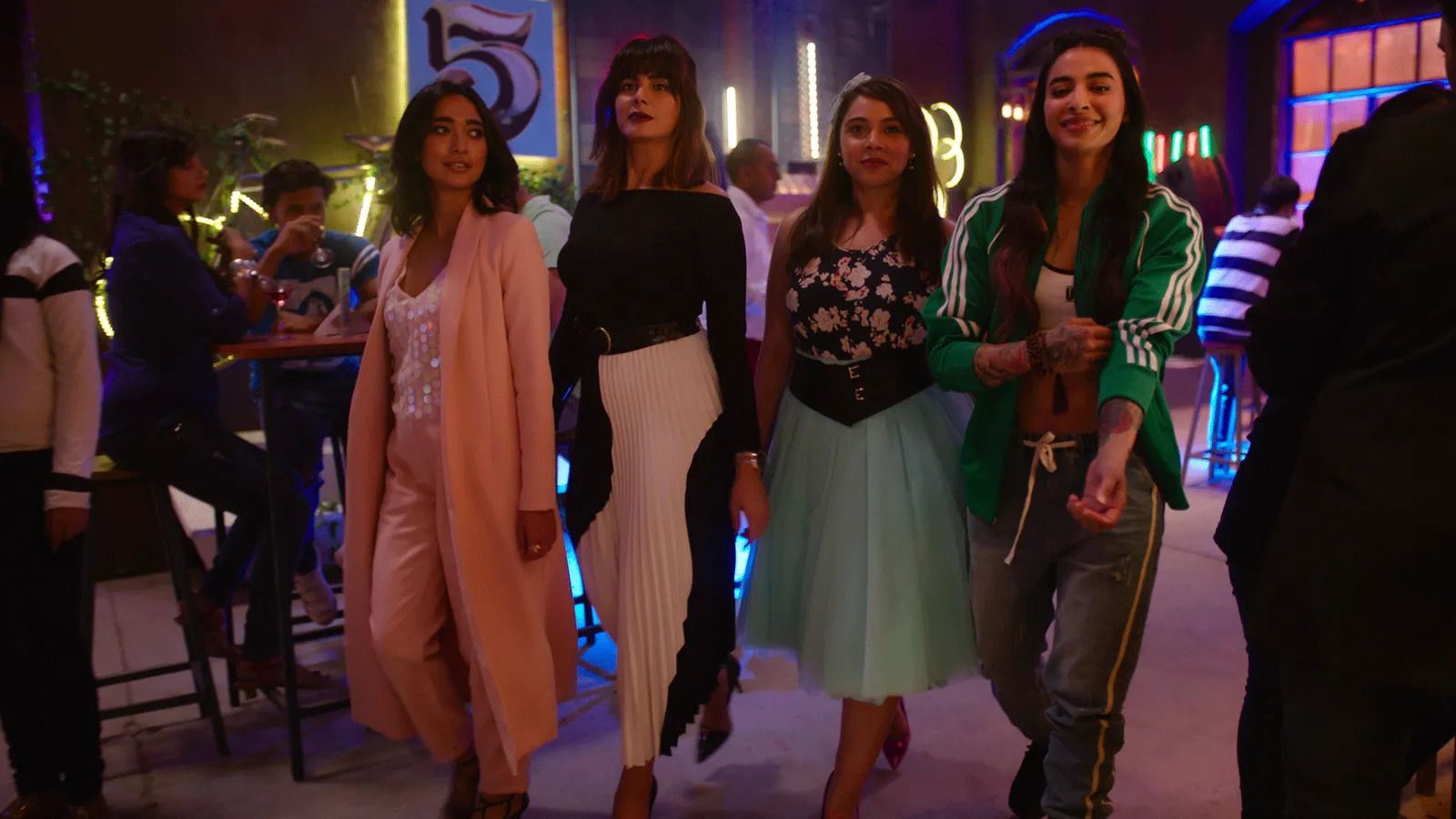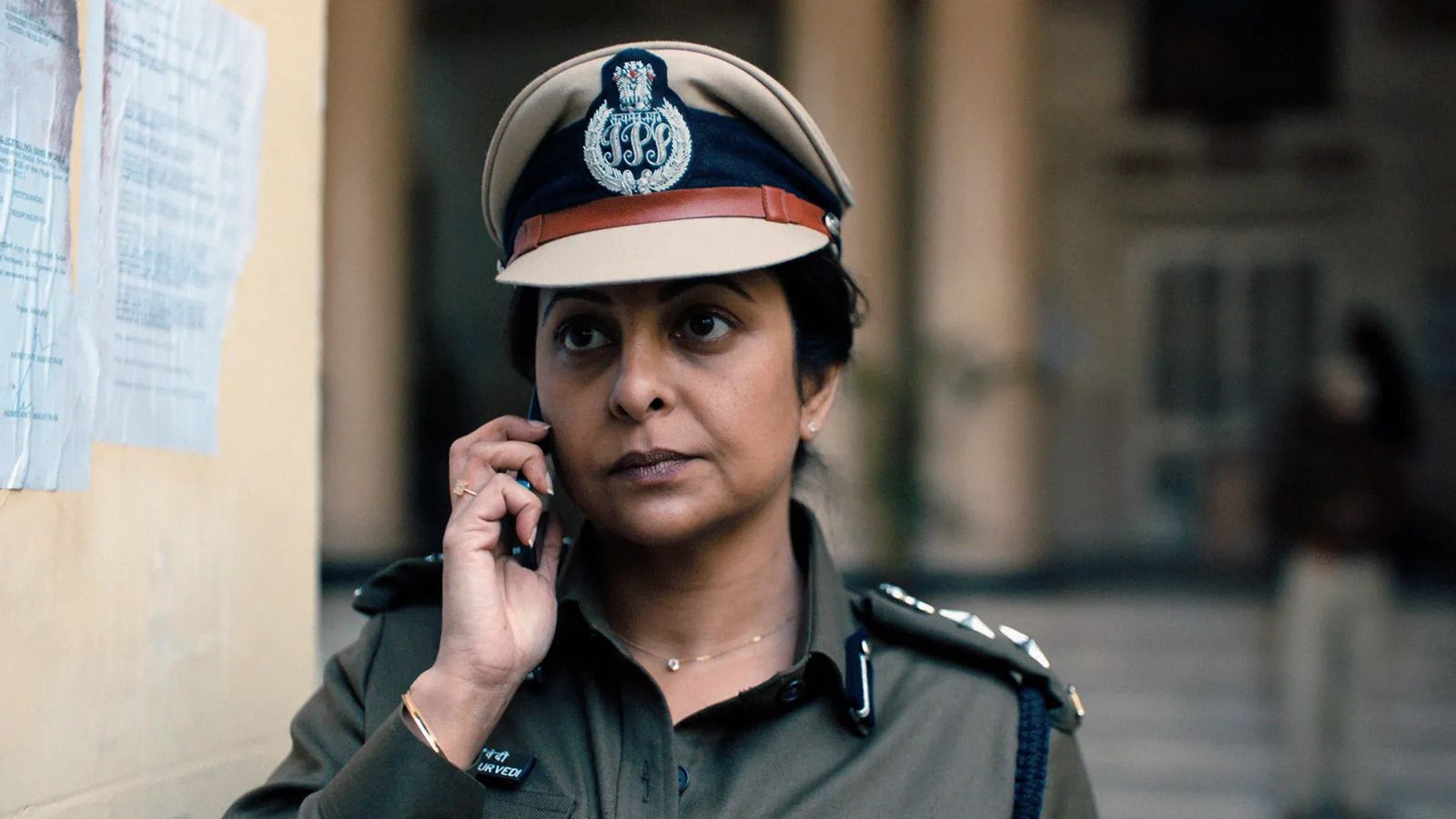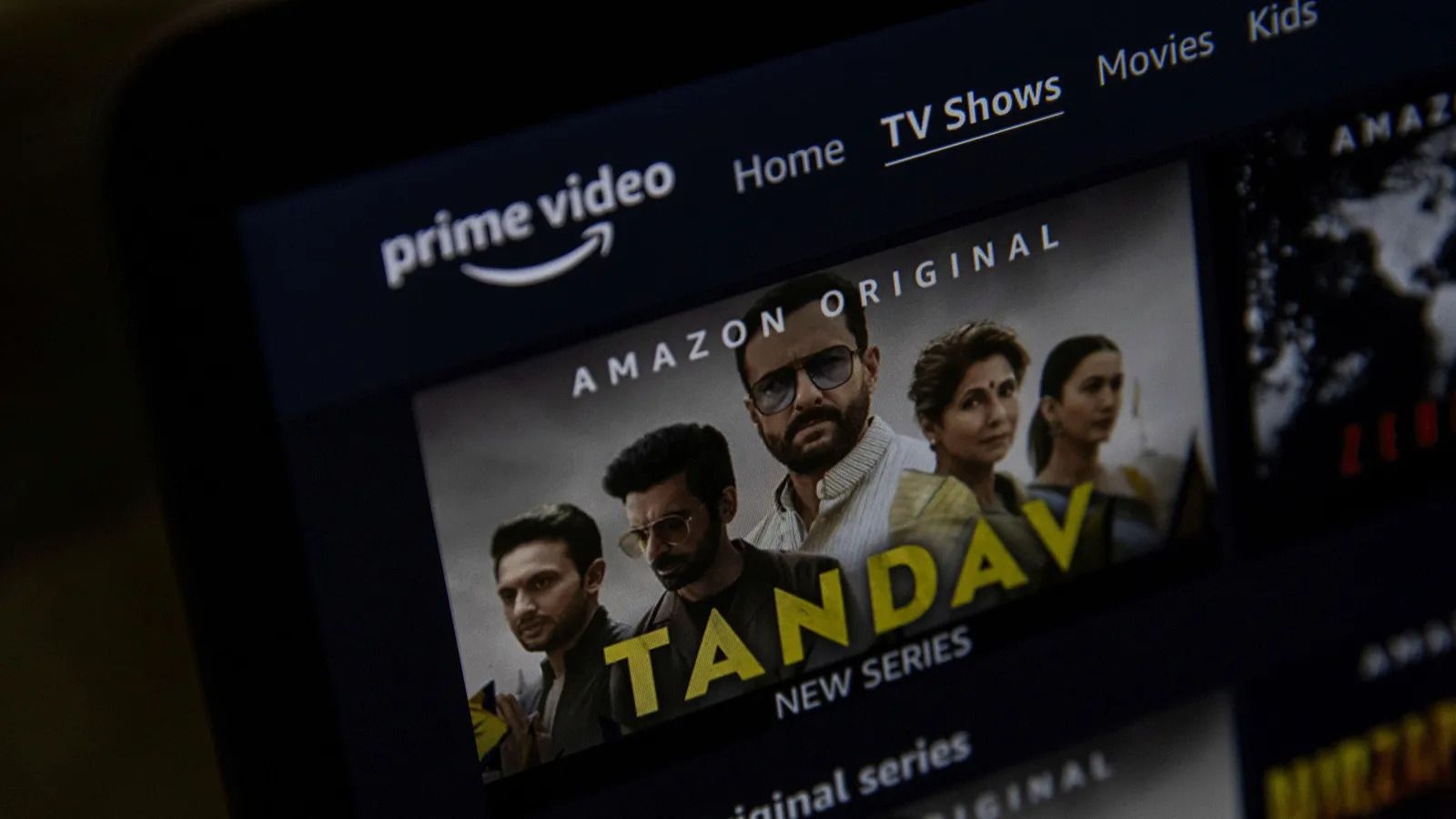
The new wave of provocative Indian TV
Older Indian television and film viewers will clearly remember the visual code used to represent kissing in decades gone by – two flowers on their stalks bending coyly towards each other. While violence in all forms was given free rein to be shown, any depictions of sex were a strict no-no. Instead, it was only hinted at with euphemisms; think of cosy fires in the bedroom and, literally, shots of the birds with the bees. Those were the times of puritanical film censoring (that still exists, sadly, but that is another story for another time) and a single state-run television channel, Doordarshan, which often ran state-sponsored content.
Cut to a scene from the recent Amazon Prime series Four More Shots Please!, where right in the first episode, an extremely fit, middle-aged man sashays across a corporate meeting room table in his underwear, as one of the four lead women fantasises about making out with him right on that table. Created by a female showrunner, Rangita Pritish Nandy, and directed by two women, this Indian take on Sex and the City follows the personal and professional lives of four urban women in their 20s and 30s as they navigate Mumbai. The second season that aired in 2020 (the third is in production) was the most watched Indian show on the platform last year.
 Four More Shots Please! follows the personal and professional lives of four Mumbai women in their 20s and 30s
Four More Shots Please! follows the personal and professional lives of four Mumbai women in their 20s and 30s
From canoodling flowers to sex in the boardroom, Indian TV has certainly undergone a big transition – and that is largely down to the advent of streaming platforms, which have given producers a lot of space to play with. There are new TV series and movies every week on sites like Netflix, Amazon Prime, Sony Liv, Disney Hotstar and the ultra-risqué Alt Balaji that are challenging industry mores and bringing to life stories that traditional media would not touch.
Nandini Ramnath, film editor at Scroll.in says that the pandemic has also led to many Indian feature filmmakers moving into the streaming space, for the sake of creating content that can find immediate viewership. And they are making both longer series and films, which is a good thing as far as choice for viewers is concerned. "Several [streaming] series are certainly better written, performed and produced than [traditional network] television shows or films. Some of them have made good use of the long format, developing characters and storylines in ways that might not have been possible in movies or on advertising break-led television," she says.
Heavy-hitting stories
Among other recent streaming successes is Made in Heaven, also on Amazon Prime, about the highly-in-demand wedding planning business in India, which deals with heavy-hitting subjects, including forced marriages, rape and incest. Meanwhile one of the main characters is an openly gay man, making it one the few Indian shows to acknowledge the existence of queer people.
Hearteningly, most of these new shows authentically reflect the vast kaleidoscope that is India itself, creating locally relevant themes, instead of looking to the West for inspiration
As for Netflix India, their hit dating show Indian Matchmaking, sparked a lot of controversy and conversation globally just last year, while dramas Lust Stories and Bombay Begums, like Four More Shots Please!, focus on women in the context of their work-life balance, sex and relationships, successes and frustrations. Then there is the slick Masaba Masaba, a story about a successful fashion designer, also in Mumbai, her career, her love life and her complex yet loving relationship with her mother. The interesting thing about this popular series, of which only one season is out so far, is that the titular role is played by real life fashion designer Masaba Gupta, in a fictionalised story about her life (with her mother Neena Gupta playing her mother).
When it comes to shows about the so-called "modern" India, there are also grittier tales . A case in point is Delhi Crime (Netflix), which recreated the story of Jyoti Singh, who was brutally raped (and subsequently died of her injuries) by a group of men in the country’s capital in the cold winter of 2012, and a female cop's crusade for justice.
 Netflix's Delhi Crime recreates the story of Jyoti Singh, who was
brutally raped and murdered in 2012, exploring a female cop's crusade
for justice
Netflix's Delhi Crime recreates the story of Jyoti Singh, who was
brutally raped and murdered in 2012, exploring a female cop's crusade
for justice
Another cop show, Paatal Lok (Amazon Prime), revolves around Delhi and the everyday violence in the Hindi hinterlands. This show won plaudits from audiences for its realistic – some say, too much so – treatment of the issues, including patriarchy and misogyny. Back again to Mumbai, The Family Man (Amazon Prime) is about a secret service agent who is part of a anti-terrorism squad, while Sacred Games (Netflix), about a troubled cop and his clash with a local gangster, is based on a bestseller by Vikram Chandra and is the one Indian show on The New York Times' list of the 30 best international TV series of the decade.
Although all these shows are set in different physical locations and are about varied themes, the one thing that ties them together is the liberal use of sexual content (which is nevertheless more suggestive than explicit still) and profanity (with no cuss word left behind). Hearteningly, though, most of them do well to authentically reflect the vast kaleidoscope that is India itself, creating locally relevant themes, instead of looking to the West for inspiration. They show various facets of India, not just the glitzy, English-speaking big cities, but also rural areas, with their own problems of caste and class, money and muscle, with everything in between also finding a place.
A stellar example of a series showcasing rural India is the comedy-drama Panchayat (Amazon Prime) about a city-born and educated engineer moving to a small village in the north Indian state of Uttar Pradesh to take up a job as a junior government employee. From the language (slang and dialect) to the local mores and manners, this is a delightful series that talks to audiences across the urban-rural divide. With companies like Reliance making internet data cheaper and more accessible, online viewing is ever on the rise in India, with people watching shows individually on computers rather than on television with their families – and there seems to be something for everyone.
Series that take a dig at India's right wing politics and the government's increasingly divisive policies (that discriminate against religious minorities, for instance) is another emerging sub-genre. In January, the political drama Tandav got Amazon Prime into trouble for scenes that were allegedly "an insult to Hindu gods", with its director agreeing to re-edit the show. after a Hindu nationalist group and politicians from the ruling Bharatiya Janata party (BJP) were among those to file police reports against it. It was an instance of the ever-more authoritarian attitude of the BJP government towards social media and streaming channels. In March, new digital media laws were introduced that brought both under government regulation, purportedly to keep content "clean" but according to critics, really to censor material so as to curb any kind of protest or dissent. According to The Guardian, Amazon Prime cancelled two new shows in the wake of them.
A divided reaction
However while this new wave of shows may be superficially provocative, it's arguable just how groundbreaking they are artistically. Certainly, Indian viewers are not seeing interesting content for the first time. In the 1980s and early 1990s, as Ramnath says, "television shows and telefilms on the state-run Doordarshan channel covered a staggering variety of subjects that could be considered 'bold' and 'brave' for their times. Many of these shows vastly influenced audience tastes and helped raise the bar for what was considered intelligent entertainment".
There is a lack of happy, middle of the road content. It is all driven by a formula, that needs to tick all the right boxes like caste, politics, sex – Armita Dutta
Audiences still speak fondly of blockbusters such as Hum Log (the country's first television series, that looked at the lives of a large middle class family in the 80s, a time of great economic change) and Buniyaad (dealing with the times just before and after India's partition from Pakistan), Tamas (a TV film that also looked at the aftermath of the Partition), Zabaan Sambhalke (a Hindi remake of British sitcom Mind your Language) and of course, the long-running epics Ramayana and the Mahabharata. It was just unfortunate that this golden age was short-lived. In the late 90s and the early 2000s, came cable networks, and with them sexist and unrealistic content about large warring families, with garish clothes, grandiose sets and completely unbelievable plotlines that went on and on for years without a care for seasons or series breaks.
There is also another question that these new shows raise: is bolder necessarily better?
Ramnath says that, while these new streaming series may be superficially more progressive, there is really not much newness in the content. "Most of the shows continue to be about crime, terrorism/nationalism, romance, political conspiracy, and family-based comedy," she points out. Meanwhile film writer Karishma Upadhyay believes the whole idea of this new wave of shows is just to push and provoke, and all the gratuitous swearing and sex is what she calls simply "a lazy way of being edgy".
 Amazon's political drama Tandav was re-edited after it created
controversy with scenes that were allegedly "an insult to Hindu gods"
Amazon's political drama Tandav was re-edited after it created
controversy with scenes that were allegedly "an insult to Hindu gods"
Journalist Amrita Dutta also rues the fact that there is no room for group family viewing in this age of stories meant exclusively for personal screens. Stuck at home with her aged parents and young daughter during the lockdown, she has felt this pinch strongly: "there is a lack of happy, middle of the road content. It is all driven by a formula, that needs to tick all the right boxes like caste, politics, sex…" She adds that while violence does exist everywhere in India, the trick is in framing it with sensitivity, instead of dehumanising women or trans people, especially, as some of these dramas tend to, in the name of showing reality.
That said, this new wave of streaming content does seem to be connecting with Indian audiences. But it may not yet be ready to capture global audiences, the way Korean drama has successfully done for a while now, or French TV has more recently. Upadhyay says, "there is no reason why this should not happen, but for that, Indian producers need to get ready to talk to the world with more universal themes, even if they keep the stories local".
But while international domination may be a while away for the Indian TV industry, as of now these shows are taking the country's own citizens to imaginative places where they have not been before – and many viewers are grateful for that.










